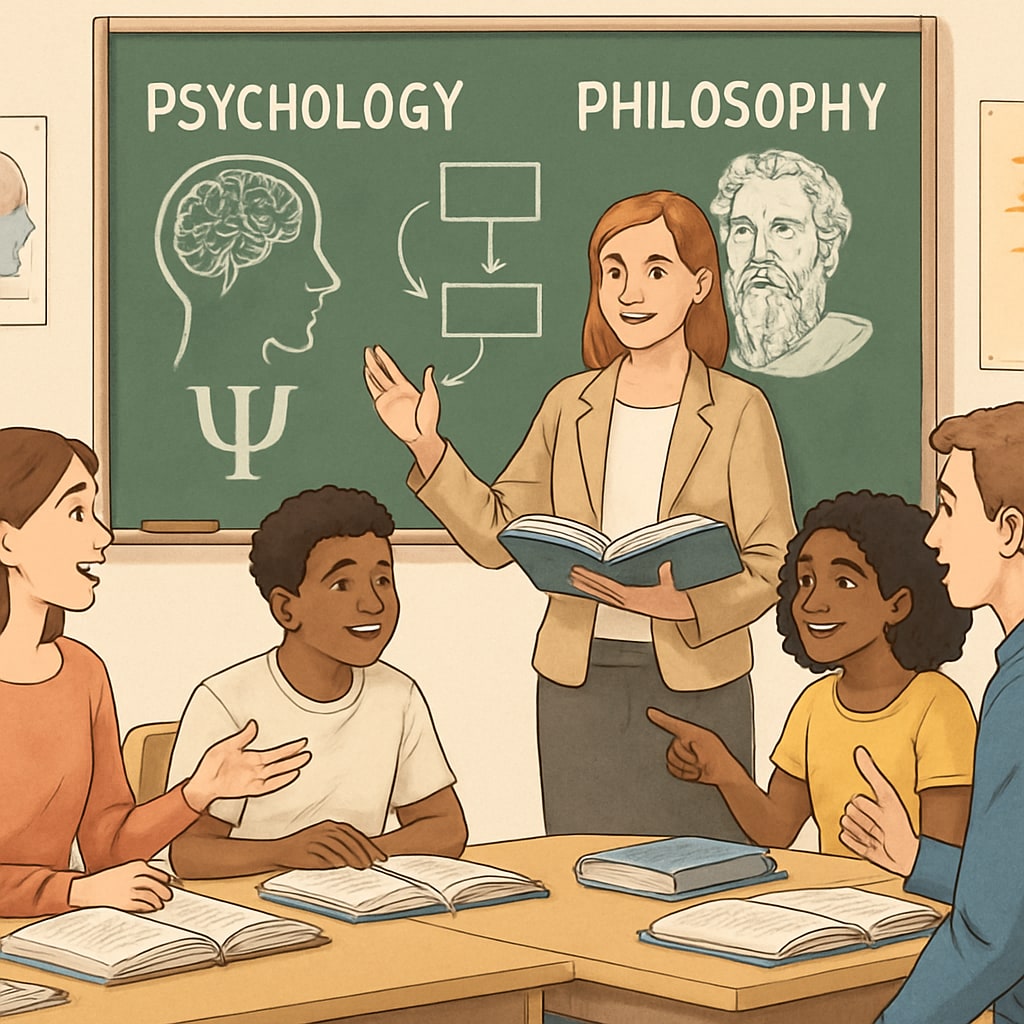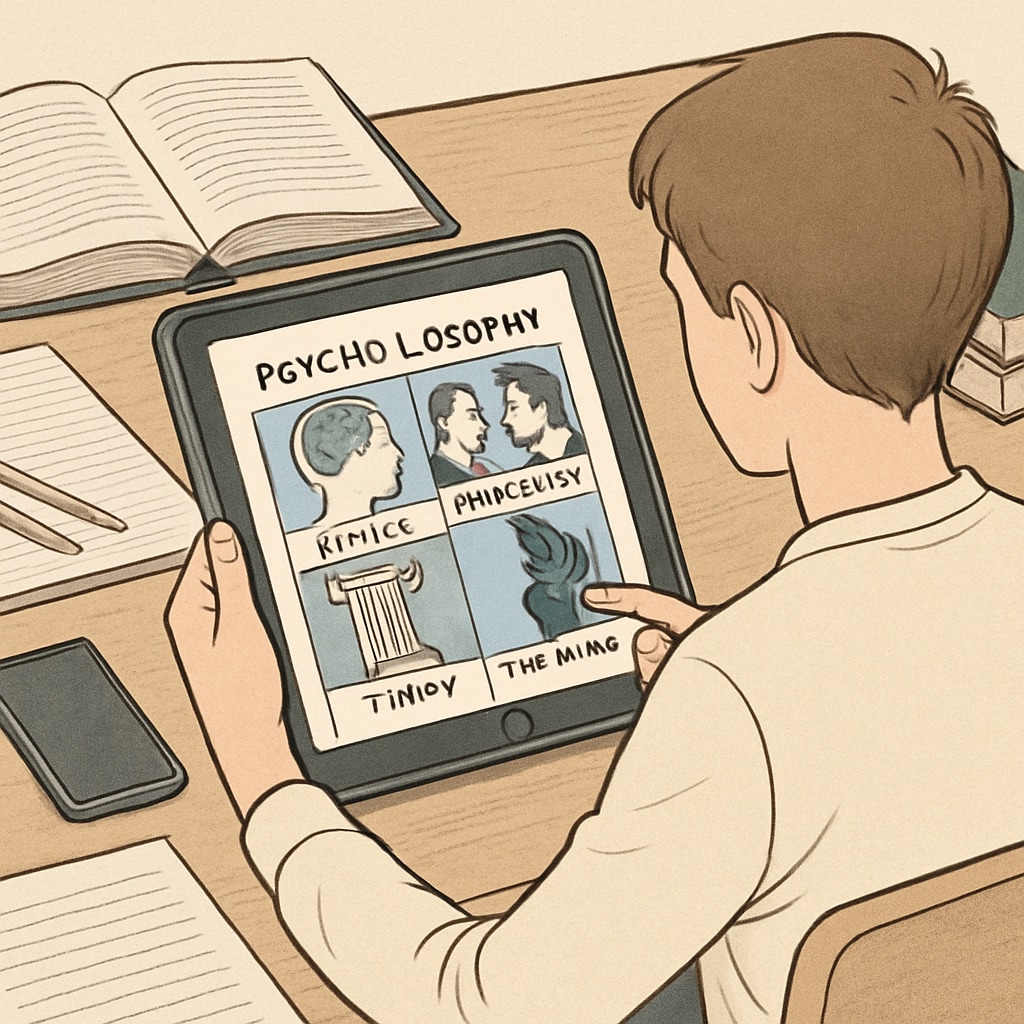In today’s educational environment, introducing “心理学,哲学,自学资源(英文)” to students in the K12 stage can play a transformative role in shaping their understanding of themselves and the world. Psychology helps students explore the intricacies of the human mind and behavior, while philosophy sharpens their ability to think critically and question deeply. However, these subjects are often absent from traditional school curriculums. Non-academic resources can bridge this gap, offering accessible tools for self-learning. In this article, we’ll explore effective methods, resources, and practices to integrate these subjects into a young learner’s journey.
The Importance of Psychology and Philosophy in K12 Education
Psychology and philosophy are not just academic disciplines; they are essential life skills. Psychology equips students with the ability to understand emotions, relationships, and the complexities of human behavior. For example, resources on emotional intelligence can help students navigate interpersonal conflicts more effectively. Philosophy, on the other hand, fosters problem-solving, ethical reasoning, and the capacity to question assumptions. These qualities are indispensable in a world requiring adaptive and critical thinkers.
Incorporating these subjects during the K12 stage lays the foundation for lifelong self-awareness and intellectual growth. While schools may not always offer structured courses on these topics, parents and educators can turn to a wealth of non-academic resources to spark students’ curiosity. From interactive platforms to engaging books, the options are vast and diverse.

Accessible Resources for Self-Learning
Fortunately, there are numerous non-academic avenues for students to explore psychology and philosophy. Here are some effective resources:
- Books: For psychology, titles like “Emotional Intelligence 2.0” by Travis Bradberry are excellent starting points. In philosophy, classics such as “Sophie’s World” by Jostein Gaarder introduce fundamental concepts in an engaging narrative format.
- Online Platforms: Websites like Khan Academy offer free courses that touch on psychological and philosophical topics. Additionally, platforms like Stanford Encyclopedia of Philosophy provide in-depth yet accessible entries.
- Podcasts and Videos: Podcasts such as “The Happiness Lab” explore psychological concepts in relatable ways, while YouTube channels like “CrashCourse” deliver bite-sized lessons on both subjects.
- Interactive Tools: Apps like “Moodpath” introduce students to mental health awareness, while platforms like “Philosophy Experiments” engage users in ethical dilemmas and philosophical thought experiments.
By utilizing these resources, students can engage with psychology and philosophy in ways that feel less formal yet equally enriching. These tools are particularly effective because they allow learners to explore at their own pace, often presenting complex ideas in simplified, relatable formats.

Integrating Psychology and Philosophy into Daily Life
In addition to curated resources, parents and teachers can integrate psychological and philosophical lessons into everyday experiences. Here are a few strategies:
- Encourage Reflection: Promote journaling or reflective discussions about daily experiences. This habit develops self-awareness and critical thinking.
- Pose Ethical Questions: Use real-world scenarios to discuss ethical dilemmas. For example, ask, “Is it ever okay to break a rule for a greater good?”
- Practice Mindfulness: Teach mindfulness exercises to help students develop focus and emotional resilience.
- Foster Curiosity: Support open-ended questions like “What makes something true?” to spark philosophical inquiry.
These practices make psychology and philosophy not just subjects to learn but tools to live by. They help students contextualize their learning and apply it to real-world situations, making the concepts more meaningful and impactful.
Conclusion: Empowering Students Through Self-Learning
Introducing “心理学,哲学,自学资源(英文)” to K12 students through non-academic resources is an empowering educational path. By leveraging accessible books, online platforms, and interactive tools, students can develop self-awareness, critical thinking, and ethical reasoning. Moreover, integrating these lessons into daily life ensures that they become lifelong skills rather than abstract concepts.
As educators and parents, providing opportunities for young learners to explore the depths of psychology and philosophy is a gift that will serve them well beyond the classroom. These disciplines shape minds, nurture wisdom, and prepare students to navigate the complexities of life with confidence and thoughtfulness.
Readability guidance: Short paragraphs and lists have been used to enhance readability. Overuse of passive voice and long sentences has been avoided, ensuring the content is both engaging and accessible.


